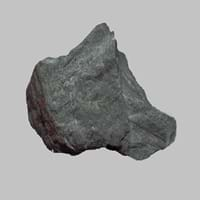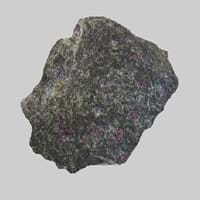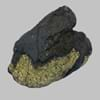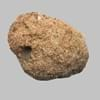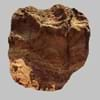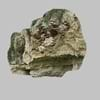Definition
Taconite is a low-grade iron ore which belongs to sedimentary rock and containing about 27% iron and 51% silica
Peridotite is a dense, coarse-grained plutonic is the main constituent of the earth's mantle
Origin
Western Australia, Minnesota
Pike County, U.S
Discoverer
Newton Horace Winchell
Unknown
Etymology
From the name of Taconic Mountains in New England
From French, from peridot + -ite
Class
Sedimentary Rocks
Igneous Rocks
Sub-Class
Durable Rock, Medium Hardness Rock
Durable Rock, Medium Hardness Rock
Group
Not Applicable
Plutonic
Other Categories
Coarse Grained Rock, Opaque Rock
Coarse Grained Rock, Opaque Rock
Texture
Banded, Trellis
Phaneritic
Color
Red, Reddish Brown
Dark Greenish - Grey
Durability
Durable
Durable
Scratch Resistant
Yes
Yes
Appearance
Layered, Banded, Veined and Shiny
Rough and Shiny
Interior Uses
Decorative Aggregates, Entryways, Flooring, Homes, Interior Decoration
Decorative Aggregates, Interior Decoration
Exterior Uses
As Building Stone, Garden Decoration, Paving Stone
As Building Stone, As Facing Stone, Garden Decoration
Other Architectural Uses
Curbing
Curbing
Construction Industry
As Dimension Stone, Used for flooring, stair treads, borders and window sills.
As Dimension Stone, Cobblestones
Medical Industry
Not Yet Used
Not Yet Used
Antiquity Uses
Artifacts
Monuments, Sculpture, Small Figurines
Commercial Uses
As a touchstone, Cemetery Markers, Creating Artwork
Creating Artwork, Gemstone, Jewelry, Source of Chromite, Platinum, Nickel and Garnet, Source of Diamonds
Types
Not Available
Dunite, Wehrlite, Harzburgite, Lherzolite and Pyrolite
Features
Is one of the oldest rock
Constitutes upper part of the Earth's mantle, Generally rough to touch, Host rock for Diamond, Is one of the oldest rock
Archaeological Significance
Famous Monuments
Data Not Available
Data Not Available
Famous Sculptures
Data Not Available
Data Not Available
Pictographs
Not Used
Used
Petroglyphs
Not Used
Used
Formation
Taconite is a type of sedimentary rock formed when a river carries or transports pieces of broken rock as it flows. When the river reaches a lake or sea, its load of transported rocks settles or deposits at the bottom of sea or lake.
Peridotites can be formed in two ways: as mantle rocks formed during the accretion and differentiation of the Earth or as cumulate rocks formed by precipitation of olivine and pyroxenes from basaltic magmas.
Mineral Content
Hematite, Magnetite, Quartz
Amphibole, Chromite, Garnet, Magnesium, Olivine, Phlogopite, Plagioclase, Pyroxene
Compound Content
Fe, Iron(III) Oxide, Silicon Dioxide
Ca, Fe, Mg, Potassium, Silicon Dioxide, Sodium, Titanium Dioxide
Types of Metamorphism
Not Applicable
Burial Metamorphism, Cataclastic Metamorphism, Contact Metamorphism, Hydrothermal Metamorphism, Impact Metamorphism, Regional Metamorphism
Types of Weathering
Biological Weathering, Mechanical Weathering
Biological Weathering, Chemical Weathering, Mechanical Weathering
Types of Erosion
Chemical Erosion, Coastal Erosion, Glacier Erosion, Water Erosion, Wind Erosion
Chemical Erosion
Grain Size
Large and Coarse Grained
Coarse Grained
Fracture
Uneven, Splintery or Conchoidal
Irregular
Porosity
Highly Porous
Less Porous
Compressive Strength
Not Available
Cleavage
Imperfect
Imperfect
Specific Gravity
5-5.3
3-3.01
Transparency
Translucent to Opaque
Translucent to Opaque
Density
Not Available
3.1-3.4 g/cm3
Resistance
Heat Resistant, Impact Resistant, Pressure Resistant, Wear Resistant
Heat Resistant, Pressure Resistant, Wear Resistant
Deposits in Eastern Continents
Asia
China, India, Iran, Iraq, Oman, Russia, Saudi Arabia, Taiwan, Thailand, Vietnam
China, India, Indonesia, Kazakhstan, Russia, South Korea, Thailand, Turkey
Africa
Kenya, Morocco, South Africa, Tanzania
Morocco, South Africa
Europe
Austria, France, Greece, Italy, Malta, Poland, Portugal, Serbia, Spain, Sweden, United Kingdom
Finland, France, Georgia, Germany, Great Britain, Italy, Kazakhstan, Netherlands, Norway, Spain, Switzerland, Venezuela
Others
Greenland, Mid-Atlantic Ridge
Not Yet Found
Deposits in Western Continents
North America
Canada, Mexico, USA
Canada, USA
South America
Bolivia, Brazil
Brazil
Deposits in Oceania Continent
Australia
New South Wales, Queensland, South Australia, Western Australia
New Zealand, Western Australia
